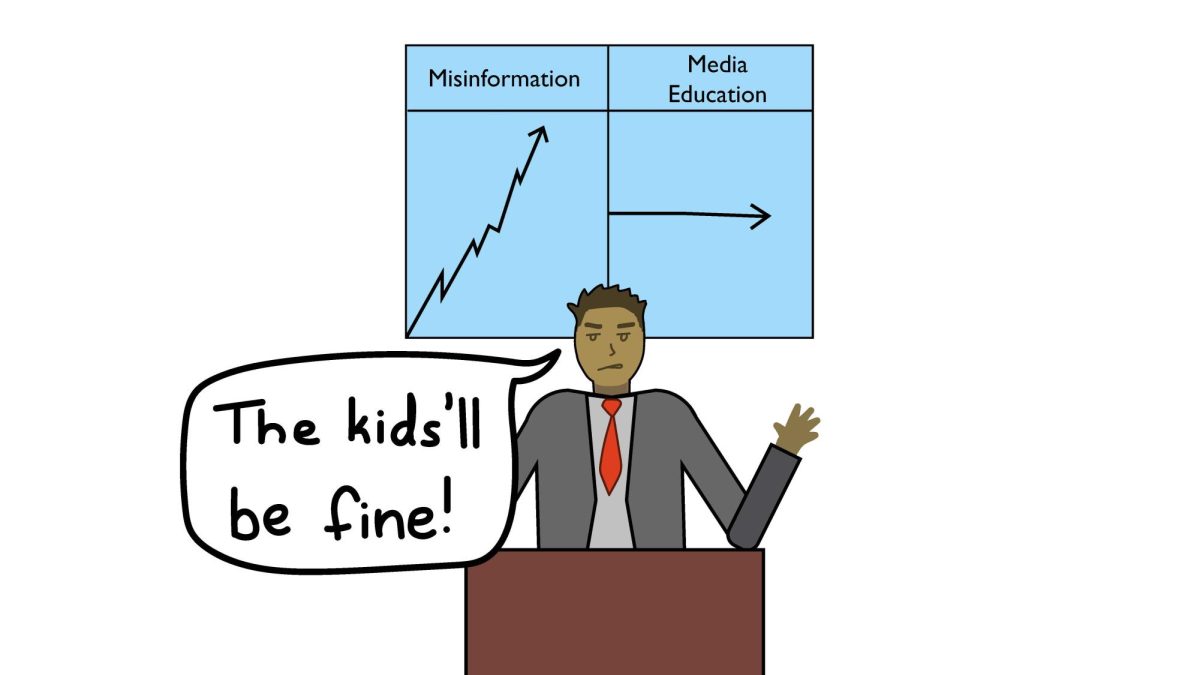Point: Accountability starts in the home
Recently, the responsibility of parents for their teenagers’ actions has come under increasing scrutiny, particularly as teens gain more societal influence. The accessibility of social media coupled with lenient parenting styles that encourage independence have led to impulsive and risky behaviors among adolescents. Many teens prioritize online approval over personal or legal safety, which raises significant concerns.
In light of the school shooting at Apalachee High School in Winder, Georgia two months ago, the debate surrounding the responsibility for children’s actions has intensified. The 14-year-old perpetrator was charged as an adult, and a case against his father was also opened. This case, as well as a similar Michigan school shooting case occurring in 2021 that was the first in the country to convict the perpetrator’s parents, have truly tested the limits of parental blame. As modern society comes to terms with the influence of teens, it may be time to shift the blame off of them and focus on their parents.
Under the Washington Parental Responsibility Law, parents are legally responsible for the emotional and physical wellbeing of their child, and in the eyes of the law, teenagers are still minors, regardless of how much they seek independence. This legal responsibility is crucial for ensuring the well-being and development of minors. It establishes a framework where parents are accountable for not only providing care and education but also guidance.
However, many parents are otherwise detached from their teenagers and therefore grant them too much authority to make choices, even when it is unwarranted. According to a 2023 Pew Research Center study, 20% of parents surveyed said they give their children too much freedom, while 35% said they give in too quickly to what their children want. Parents must instill important values to keep teens safe and informed. While pushing boundaries is vital for teens, parents must also establish new ones as their children grow to ensure they can get along well.
Often, parents are a key influence on their child’s core values. By offering boundaries and guidance, parents bear responsibility for their teenagers’ behavior and must create an environment where teens can make appropriate decisions. Holding parents accountable encourages proactive involvement, promotes healthier development and reduces reckless behavior. A 2023 University of Rochester Medical Center study found that the decision-making part of a person’s brain does not fully develop until their mid-20s. In fact, adult and teen brains work very differently; unlike teens, adults think with the prefrontal cortex, also known as the brain’s rational center. Teens do not have the capacity to do this on the same scale as adults, so we shouldn’t be surprised that their decision-making capabilities do not reflect an adult’s maturity.
Holding parents accountable for their children’s actions is essential for fostering a responsible society. By ensuring active parental involvement, we can cultivate a generation that understands the weight of their choices, highlighting the importance of support for teenagers. Creating responsible teens is a joint effort between parents and teenagers that will ultimately create a healthier future with well-adjusted adults.
Counterpoint: Accountability is a reflection of their environment
Adolescence is when children transition to being fully independent, which raises questions about how responsible a parent should be for their teenager’s actions. Teenagers have more developed brains than younger kids, which means that they have more autonomy. They are capable of making smart decisions because they know right from wrong. Most of the time, parents should be partially responsible, because their teen had some hand in how the situation occurred. It’s unreasonable to hold parents fully responsible when there are a variety of situations involving their children that are out of their control.
In the younger ages, parents are responsible for giving their children a strong moral foundation but in the teenage years, accountability must shift from parent to child. Although parents have legal responsibility over their children until turn 18, the transition to teens taking full accountability should not be sudden. Gradual independence prepares teenagers for adulthood, when they must make decisions for themselves and be held accountable for them.
If parents are forced to assume all responsibility for their child’s actions, that makes the ignorant assumption that they know everything about their child’s life, which is not entirely within their control.
Teens can choose how much their parents really know about their lives. Some parents may try to regulate their teens’ lives through social media, by monitoring their accounts or setting up time limits to prevent exposure, but teenagers can bypass that with different accounts or secret devices. Parents may also not be around as much due to various circumstances. A single parent working multiple jobs should not be judged for not monitoring their child as closely as stay-at-home parents.
When parents are fully aware, that is when legal responsibility comes into play and they must take all responsibility for their teen’s actions. If a parent doesn’t see any signs of their teen’s unstable mental state, and the teenager proceeds to cause harm, the teen should be held fully accountable for their actions. But if a parent has seen multiple instances of disturbed thinking and dangerous outbursts and decided to ignore it without properly investigating the reasons behind their behavior, and then the teen harms others, the parents are equally responsible for the accident, because preventing it was within their control.
Parents are also not the only influential factor in a teenager’s life. With some exceptions, most teens spend lots of time at school, an environment that has a big effect on well-being and, by extension, actions. Like parents, schools hold the responsibility of disciplining, educating and assisting children academically and mentally. If a school fails to provide quality education or lacks a good mental health care program, they need to be held accountable on the same level as a parent who fails to support their child’s academic and mental health needs. Parents can choose to send their kids to better schools or homeschool them, but this choice isn’t accessible to all parents.
A parent’s responsibility should reflect their circumstances, which falls within a range. Responsibility is a complicated matter, especially when considering a teen’s environment outside the home, which is also a big influence on character and actions. Rather than solely resting on the parent, responsibility is something that should be shared by the parent, the teen and the teen’s environment.











